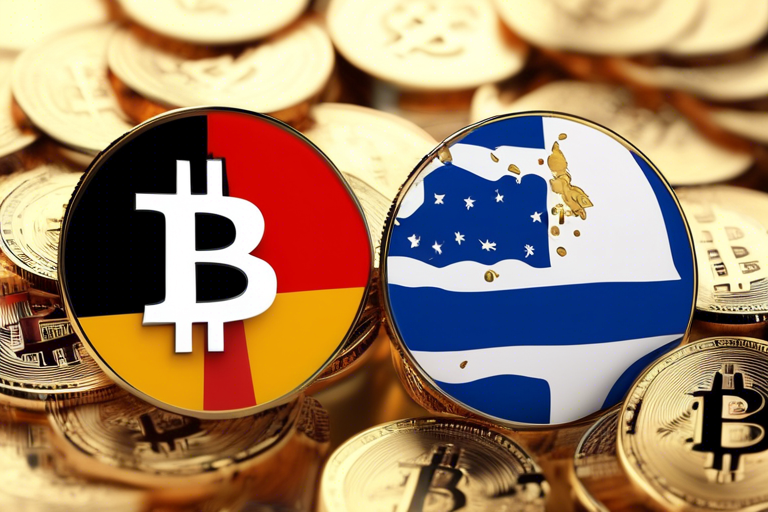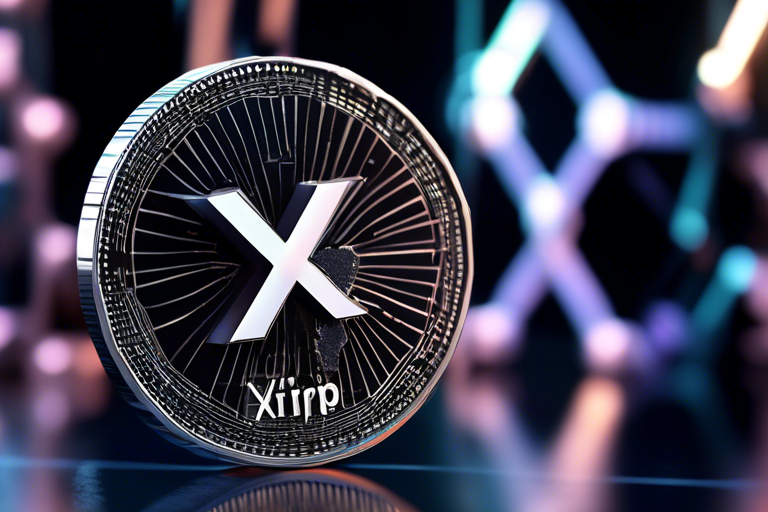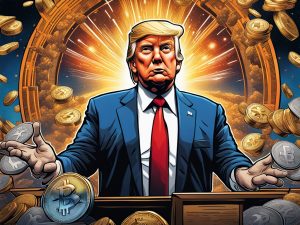Fresh Insights on Government Bitcoin Holdings and Market Impact
Recent developments in the crypto market have highlighted how government actions can significantly impact Bitcoin’s price and market sentiment. The US government’s decision to transfer a substantial amount of BTC to Coinbase Prime has raised concerns among investors. Conversely, El Salvador’s approach to accumulating Bitcoin showcases a contrasting strategy that could have long-term implications for the crypto market. Understanding how governments interact with Bitcoin can provide valuable insights for traders and investors navigating this volatile market.
US Government’s Bitcoin Transfer to Coinbase Prime
The US government’s recent transfer of 3,940 BTC ($240 million) to Coinbase Prime has sparked speculation about its intentions and potential impact on Bitcoin’s price. This move is part of the seizure from narcotics trafficker Banmeet Singh, who operated through the Silk Road marketplace. In the past, the US government has offloaded seized BTC, leading to significant selling pressure on the market. The latest transfer to Coinbase Prime suggests a similar trend could unfold, adding to the existing selling pressure on Bitcoin.
- The US government sent 3,940 BTC ($240 million) to Coinbase Prime
- Speculation arises around potential selling pressure on Bitcoin
- Previous instances of US government offloading BTC causing market impact
The Silk Road Connection and Previous BTC Sales
Significantly, the US government’s history of seizing assets related to illicit activities like the Silk Road marketplace has led to substantial BTC holdings. Their previous sale of 9,861 BTC ($216 million) in March 2021 resulted in market volatility and price fluctuations for Bitcoin. While the current transfer to Coinbase Prime has not been confirmed as sold, the potential for additional selling pressure remains a concern for investors monitoring market conditions.
German Government’s Crypto Exchange Transfers
Arkham Intelligence data also revealed the German government’s recent transfers of Bitcoin to crypto exchanges Kraken and Bitstamp, totaling 125 BTC ($7.71 million) each. This follows earlier transfers to Kraken and Coinbase, indicating a pattern of offloading BTC holdings by governments. The cumulative effect of US and German government sales, along with other market factors, underscores the challenges facing Bitcoin amid growing selling pressure.
- German government transfers 125 BTC ($7.71 million) to Kraken and Bitstamp
- Additional 400 BTC ($24 million) transferred to Kraken and Coinbase
- Uncertainty surrounding 1,000 BTC transfer to an unknown address
Market Impact of Government Bitcoin Sales
The combined efforts of the US and German governments to transfer BTC to exchanges raise concerns about the potential market impact. With Bitcoin already facing significant selling pressure from other sources, such as miner sales, the emergence of government sales adds to the overall bearish sentiment. Traders and investors are closely monitoring these developments to gauge the impact on Bitcoin’s price and market dynamics in the coming weeks.
El Salvador’s Bitcoin Accumulation Strategy
In contrast to government Bitcoin sales, El Salvador has adopted a different approach by accumulating BTC as part of its long-term strategy. The country’s decision to embrace Bitcoin as legal tender and initiate a daily purchase program highlights its commitment to integrating cryptocurrencies into its financial ecosystem. El Salvador’s proactive stance on Bitcoin could serve as a model for other governments seeking to leverage digital assets for economic growth and innovation.
- El Salvador accumulates 5,794 BTC ($351.82 million) through strategic initiatives
- Adoption of Bitcoin as legal tender and daily purchase program showcase commitment
- Plans to establish a Bitcoin bank to attract foreign investment
Long-Term Implications of El Salvador’s Bitcoin Strategy
El Salvador’s embrace of Bitcoin extends beyond mere accumulation to fostering an ecosystem that supports digital asset adoption and innovation. By actively engaging with Bitcoin through foreign investments, mining operations, and infrastructure development, El Salvador is positioning itself as a crypto-friendly jurisdiction. The government’s forward-thinking approach to Bitcoin could set a precedent for other nations looking to harness the benefits of blockchain technology and decentralized finance.
Hot Take: Navigating Bitcoin’s Market Dynamics Amid Government Actions
The evolving landscape of Bitcoin’s market dynamics, shaped by government actions and institutional decisions, presents challenges and opportunities for traders and investors alike. As governments like the US and Germany navigate their BTC holdings, the market responds to the influx of supply and selling pressure. In contrast, countries like El Salvador demonstrate a proactive approach to accumulating Bitcoin and integrating it into their economies. Understanding these contrasting strategies can provide valuable insights for navigating the volatile crypto market in the short and long term.





 By
By
 By
By
 By
By
 By
By
 By
By